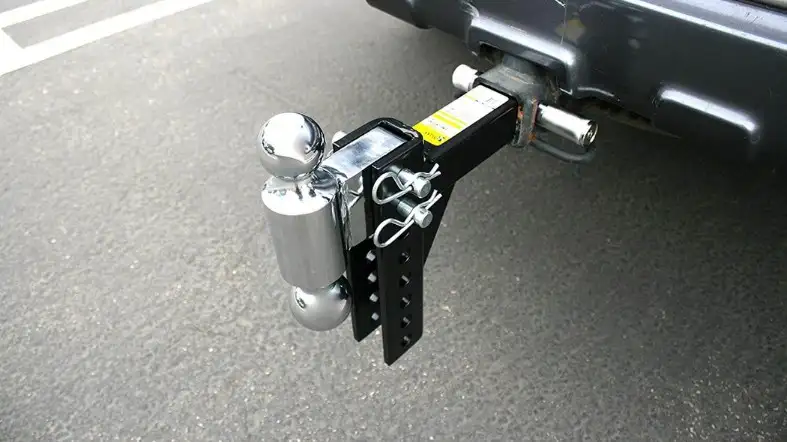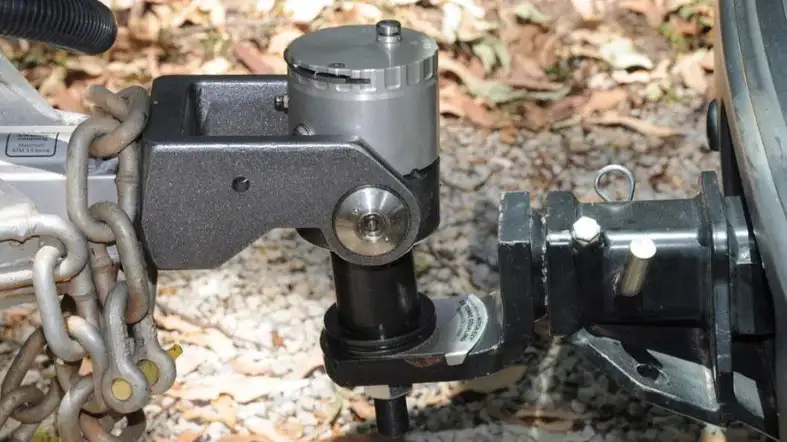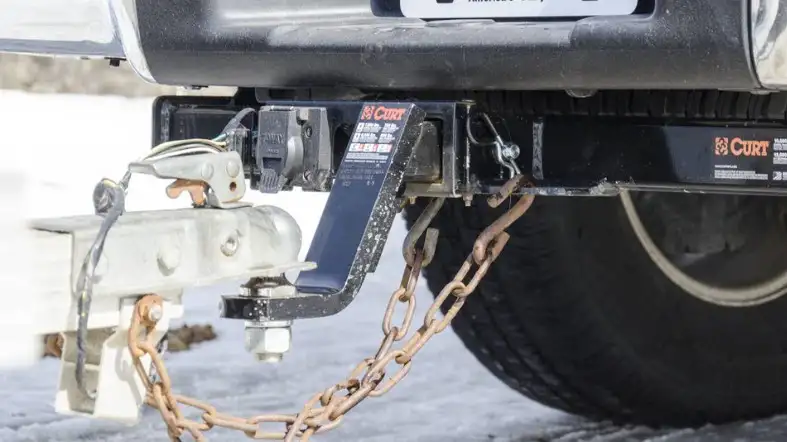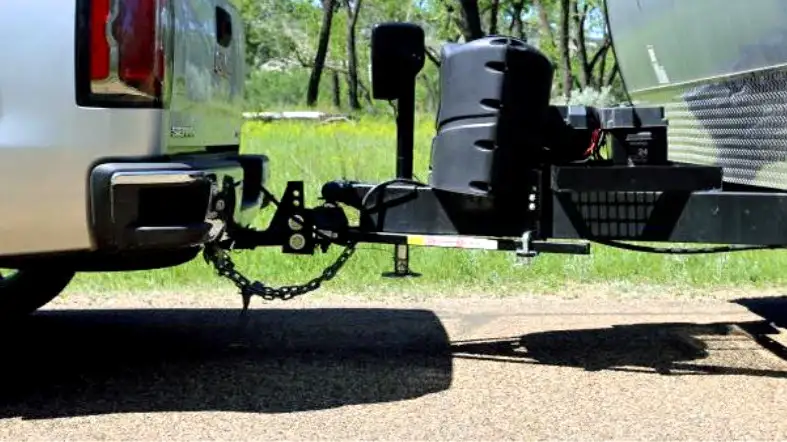If you own a hitch for your vehicle and are considering using it to tow a different size trailer, you may be wondering if it is possible to do so.
The answer is not straightforward and depends on a few different factors.
In this article, we will explore whether or not you can use your existing hitch for a different size trailer and what considerations you should take into account before making the switch.
Can I use my existing hitch for a different size trailer?
Yes, it is possible to use an existing hitch for a different-size trailer, but there are some important factors to consider.

First, the hitch must be rated for the weight of the trailer you want to use it with.
If the existing hitch is not rated for the weight of the new trailer, it could break and cause a serious accident.
Second, the hitch must be compatible with the hitch on the trailer itself.
Different hitch sizes and styles have different mounting requirements, so you will need to make sure that the hitch on the trailer and the hitch on your vehicle is compatible.
Third, you will need to ensure that the hitch can accommodate the dimensions of the trailer.
The hitch must be able to hold the trailer securely without interfering with the trailer’s ability to move or turn.
Overall, it is possible to use an existing hitch for a different size trailer, but it is important to carefully consider the weight, compatibility, and dimensions of the trailer and hitch before making the switch.
How To Know If An Existing Hitch Can Be Used For A Different Size Trailer?

There are several factors that determine if an existing hitch can be used for a different-size trailer:
1. Hitch type:
The type of hitch used on the existing trailer will dictate whether it can be used for a different size trailer.
For example, a weight-distributing hitch is not compatible with a trailer that does not have a weight-distributing hitch.
2. Hitch weight capacity:
The weight capacity of the existing hitch must be sufficient to support the weight of the new trailer.
If the existing hitch is not rated for the weight of the new trailer, it cannot be used.
3. Hitch height:
The height of the hitch must be compatible with the height of the new trailer’s hitch ball.
If the hitch ball is too high or too low, it will not be able to connect properly to the hitch.
4. Hitch ball size:
The size of the hitch ball on the existing hitch must match the size of the hitch ball on the new trailer.
If the hitch ball sizes do not match, the trailer will not be able to connect properly to the hitch.
5. Hitch ball weight capacity:
The weight capacity of the hitch ball on the existing hitch must be sufficient to support the weight of the new trailer.
If the hitch ball is not rated for the weight of the new trailer, it cannot be used.
How To Determine The Correct Hitch Size For Your Trailer?

Here are some tips for determining the correct size for your trailer:
1. Determine the weight of your trailer:
The weight of your trailer is an important factor in determining the correct hitch size.
It is essential to know the total weight of your trailer, including the weight of the cargo, to ensure that the hitch size can handle the load.
2. Determine the towing capacity of your vehicle:
The towing capacity of your vehicle is the maximum weight that it can safely tow.
It is important to consult the owner’s manual of your vehicle to determine its towing capacity and ensure that the hitch size you choose is within the limits of your vehicle’s capacity.
3. Consider the type of trailer:
Different types of trailers require different hitch sizes.
For example, a small utility trailer may require a different hitch size than a large travel trailer.
It is important to consider the type of trailer you will be towing when selecting a hitch size.
4. Consider the type of hitch:
There are different types of hitches, such as weight-distributing hitches and standard hitches, that have different weight capacities.
It is important to consider the type of hitch you will be using when selecting a hitch size.
5. Consult a professional:
If you are unsure of the correct hitch size for your trailer, it is always best to consult a professional.
A professional can provide expert advice and help you select the right hitch size for your specific situation.
What To Do If Your Existing Hitch Is Not Suitable For Your New Trailer?

If your existing hitch is not suitable for your new trailer, you can follow these tips:
1. Identify the specific issue with the existing hitch and determine if it can be easily modified or adjusted to fit the new trailer.
2. If the hitch cannot be easily modified or adjusted, consider purchasing a new hitch that is specifically designed for the new trailer.
3. Ensure that the new hitch is properly installed and rated for the weight and size of the new trailer, following the manufacturer’s instructions and guidelines.
4. Test the new hitch by attaching the trailer and performing a test drive to ensure that it is securely attached and functioning properly.
5. If the new hitch still does not fit or function properly, consult with a professional mechanic or trailer specialist to determine the best solution for your specific situation.
6. Regularly inspect and maintain the hitch to ensure its continued functionality and safety.
This may include checking the tightness of bolts and other hardware, lubricating moving parts, and replacing worn or damaged parts as necessary.
FAQs on if Existing Hitch can be used For A Different Size Trailer
Can I Upgrade My Existing Hitch To Support A Larger Trailer?
In some cases, it may be possible to upgrade or modify your existing hitch to support a larger trailer.
However, this can be a complex and potentially dangerous process, so it is important to consult with a professional before attempting any modifications.
What Factors Should I Consider When Choosing A Hitch For My Trailer?
When choosing a hitch for your trailer, you should consider the size and weight of the trailer, as well as the towing capacity of your vehicle.
You should also consider the type of hitch that is compatible with your vehicle and the types of hitches that are suitable for the specific type of trailer you are using.
Can I Use A Hitch Designed For A Car On A Truck Or SUV?
In most cases, hitches designed for cars are not compatible with trucks or SUVs.
The weight and towing capacity requirements for these vehicles are typically much higher, so it is important to choose a hitch that is specifically designed for use with trucks or SUVs.
What Are The Different Types Of Hitches And Which One Is Best For My Trailer?
There are several different types of hitches, including ball hitches, pintle hitches, and gooseneck hitches.
The best type of hitch for your trailer will depend on the size and weight of the trailer, as well as the towing capacity of your vehicle.
Conclusion
It is possible to use your existing hitch for a different size trailer, but it is important to consider the weight capacity and compatibility of the hitch with the new trailer.
It is always best to consult with a professional or refer to the manufacturer’s recommendations before making any modifications to your hitch.
Additionally, it is important to ensure that all safety protocols are followed when towing a trailer, regardless of the size.
